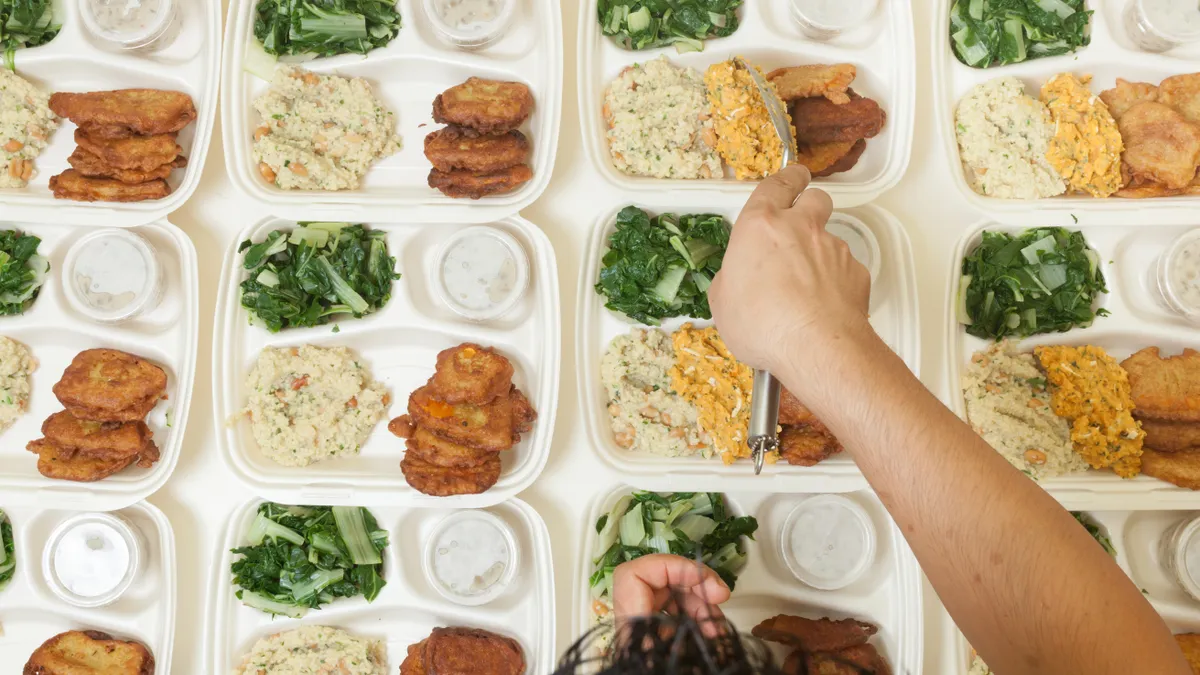Dive Brief:
- Far fewer children ate lunch through the Summer Nutrition Programs in July 2022 than the year prior, with participation plummeting by 44.5%, according to a new report from the Food Research and Action Center. In total, almost 3 million children were served on an average day last summer, which was down by nearly 2.4 million children over the summer before.
- Even with the significant dip, however, lunch participation hovered slightly higher than in pre-pandemic times. Some 201,459 more children accessed summer lunches in July 2022 than in July 2019, the advocacy group said.
- Children’s summer breakfast participation followed the same pattern, but showed an even greater year-over-year drop. Summer breakfasts served decreased by 2.9 million, or 61.6%, in July 2022 from July 2021. But compared to July 2019, 284,210 more summer breakfasts were served in July 2022.
Dive Insight:
The decline in summer meal participation followed Congress’ decision to wait until June 2022 to extend pandemic-era waivers for these programs to operate in all communities. At that point, it was too late for many summer meal program sponsors to get operations going, so fewer sites ultimately served meals, the FRAC report said.
In December, Congress passed legislation establishing a permanent program providing an Electronic Benefit Transfer card to eligible families so they can buy food in the summer months.
Summer EBT, the report noted, is "an important complement to the provision of summer meals, and these approaches, along with the long-standing congregate meal sites that often offer meals and enrichment.”
Meanwhile, evidence is growing that paying for school meals strains finances for some families. The U.S. Department of Agriculture this month released a study that found almost one-third of households with children ages 5-17 that paid for school meals in December said the cost made it harder for them to cover other expenses.
Other indicators show the end of pandemic-era universal school meals hurt overall participation in school meals. More than half of 91 large school districts reported a decrease in school meal participation between April 2022 and October 2022, according to a separate report released by FRAC in June.
To address concerns around affordability and accessibility, some states are beginning to create their own free school meal policies. Michigan recently became the seventh state to establish a permanent universal school meal program when Gov. Gretchen Whitmer signed the state’s education budget, with such a provision, into law this month.







 Dive Awards
Dive Awards







